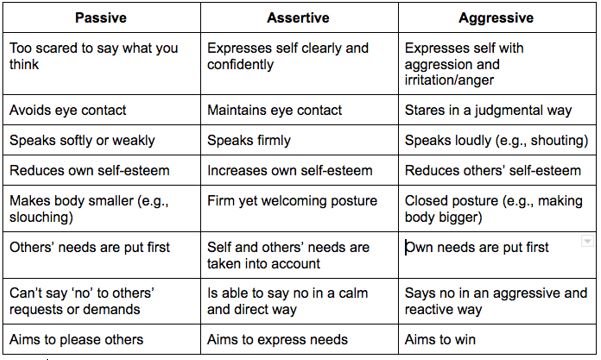Assertive Communication
By developing helpful communication strategies we can express what we want in a clear and calm way. This is called assertive communication.
Assertiveness is an important skill to learn as it can help us to manage conflict, confrontation, disagreements with others, making a request or to communicate in emotional situations.
The ability to be assertive is most important when we are being asked to do something that is against our values or best interest.
· There are three types of communication styles; passive, assertive and aggressive.
Passive:
Those that do not share their honest feelings, thoughts or beliefs. Give in easily to others or agree with others. Don’t say what they want or communicate what they need or want.
Assertive:
Express what they want in a clear way. Willing to compromise and meet in the middle between their needs and others. Able to say no respectfully whilst listening to others.
Aggressive:
Believe strongly in their personal rights and express their thoughts, feelings and beliefs over others. Can be intimidating, talk over others and utilises ‘you’ statements
Here are three tips to help you to speak assertively:
1. Speak calmly and clearly
2. Use I statements instead of you statements – it assists to convey feelings about a situation and becomes harder with others to argue with.
3. Provide a clear reason:
I feel ____________ when ____________ because ____________
Resources:
· https://www.healthywa.wa.gov.au/Articles/A_E/Assertive-communication
Podcast:




